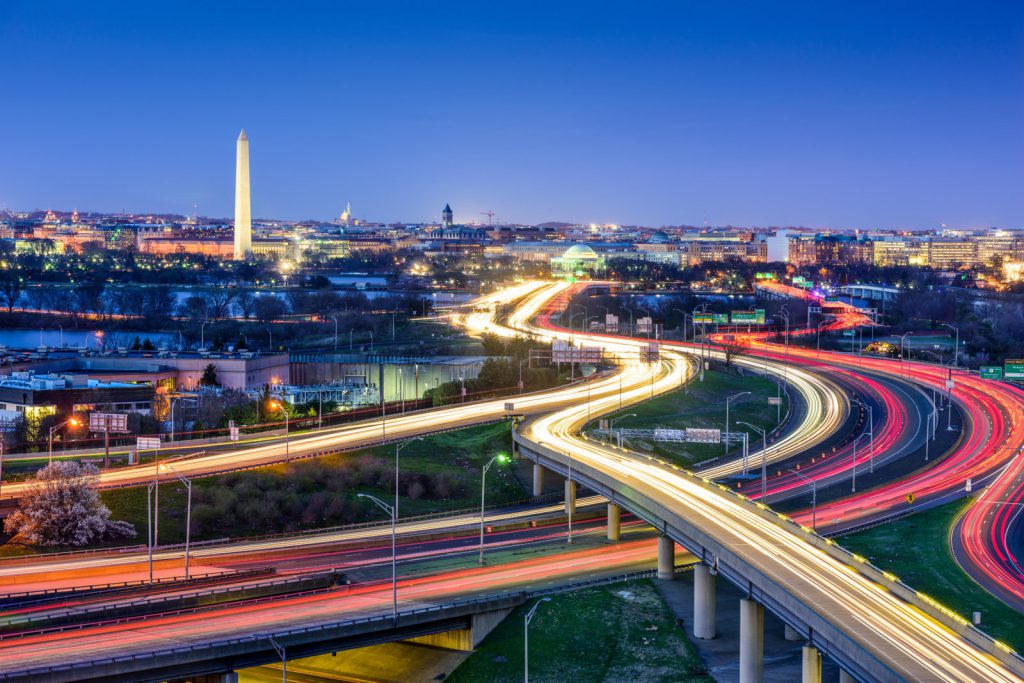
Published September 21, 2017
Editor’s Note: In a series of columns, Pascal-Emmanuel Gobry, a Paris-based conservative and fellow at the Ethics and Public Policy Center, writes on an alarming trend that he calls the Francification of America.
France and America are countries linked at birth. They have always seen in each other funhouse-mirror visions of the other, and they have used each other to try to understand themselves. Writers such as Alexis de Tocqueville in the 19th century and Jean-Jacques Servan-Schreiber in the 20th wanted France to be more like America; today, Gobry argues, America is turning into France, and in the wrong ways.
One of the most influential books of French sociology in the post-war era was the aptly titled Paris and the French Desert. There geographer Jean-François Gravier detailed all the ways in which Paris sucked out the country’s resources. As always when it comes to France, the historical roots are deep: French kings sought to centralize power around their capital; the French Revolution (in so many ways merely a continuation of the monarchy) concentrated power even further, destroying the ancient provinces and replacing them with identically square-shaped départements that could all be administered from Paris. The Industrial Revolution led to economic power clustering around the locus of political power and to the countryside emptying out to join the factories ringing Paris.
The book’s prescriptions have aged badly; Gravier had a post–Great Depression hostility to free markets and was an admirer of Fascist and Communist programs of central planning. But by the post-war era, when Gravier was writing, the political and economic trends toward centralization had culminated in a situation that made the striking image of his title wholly appropriate. He was both impeccably rigorous in terms of his academic analysis and withering in his rhetoric, describing, for example, Paris as a “monster” that was spreading its “tentacles” everywhere to “devour” the rest of the country. That combination, and the timing of the book’s publication in 1947, as France was starting to think about how to rebuild itself from the ashes of World War II, made it extremely influential, to the point that using the phrase “Paris and the French desert” as a way to bemoan France’s centralization has become common.
Since the post-war era, successive governments have tried to decentralize the country to some extent, with more or less luck; in certain respects, the picture has changed notably since Gravier’s day, but France remains a highly centralized country. Our history of centralization has surely contributed to making Paris one of the world’s great cities, but it has also surely had serious drawbacks. That there is only one track for success, to go up to the big city, must be impoverishing, not only economically but sociologically and culturally.
Now, the multifaceted love–hate relationship between city and country is as old as civilization itself; you can read all about it in Aesop’s “The Town Mouse and the Country Mouse.” And it has certainly been a feature of American life since before the Revolution.
But there are degrees, and the degrees matter. It has become a common trope to note that Washington, D.C., has been the only metro area to keep growing and thriving throughout the financial crisis and Great Recession — and that the wealthiest counties in America are ending up around Washington. This oddity, with Washington having been, for most of its history, a sleepy town of middling importance, shows the unprecedented concentration of power in Washington and the money spigot that it has opened for those (including, it should be noted, the GOP-linked consultant and political class) who, in so many different ways, figure out how to profit from Leviathan.
But the phenomenon goes beyond the concentration of power in D.C., alarming as that is. The half-hearted attempts at financial regulation have done little to reduce the importance of finance to the American economy; and, geographically and economically, the BosWash corridor is really one very large city.
Many writers have made the case that American meritocracy is a victim of its own success — its very efficiency in selecting the most talented and aggregating them in the halls of power has created a power caste that undermines the very equality that it is supposed to promote. Writers such as Charles Murray and Ross Douthat have made this point recently, but the indispensable Christopher Lasch already famously argued in the 1990s, in his Revolt of the Elites, that meritocracy is a “parody of democracy.” Since Lasch wrote, the phenomenon has only picked up steam. If anything, the post–Great Recession trend is toward a deepening of the city–country dichotomy: If you’re drowning in college debt and the economic future looks bleak for all but the most successful, it becomes almost a matter of survival to jump on the meritocratic hamster wheel and run as hard as you can.
Men and women who would have become regional elites in a previous generation now all congregate around New York and Washington, playing their national games instead of enriching their local communities.
The end result is not quite (yet) an American Desert, of course. America is much too big, much too multifaceted, much too resourceful for that. And the big exception is Silicon Valley, which rivals even BosWash for not only wealth but global influence. But certainly the giant sucking sound of human capital being diverted to BosWash (and to Silicon Valley) has left some American regions — Charles Murray’s “Fishtown” — lacking sufficient human and institutional capital.
This has left the city–country divide deeper than ever — and more acrimonious. In identifying “real America” with small towns, Sarah Palin implied that city-dwellers were not just misguided or out of touch but un-American, a charge as staggering as the echo that it found. (Contrast Ronald Reagan’s justly famous “Morning in America” ad, which clearly showed American greatness as belonging to both city and country.) For all the justified talk about economic and racial divides in the 2016 election, the city–country divide clearly played a dominant role in the most acrimonious campaign in living memory.
The divide no longer runs along economic or social policy but between groups whose lifestyles that have become increasingly alien and incomprehensible to one another. For example, one variable of the gun-rights debate that nobody seems to call attention to is that police-response times are, by necessity, very different in urban areas and in rural areas. That empirical difference significantly changes the calculation behind one’s decision whether to arm for self-defense, and yet neither side seems to be aware of how the other side’s lifestyle can change their perspective for very practical, as opposed to ideological, reasons. To the city-dweller, having a gun for self-defense seems unnecessary since he is always near people who can call the police, who will, in most cases, show up swiftly; to the country-dweller, a gun seems necessary because those conditions don’t obtain. But because we don’t think about those details, we are left screaming at each other that we hate motherhood and apple pie. (I am not making an argument one way or another about gun policy or the Second Amendment, merely pointing out that the fact that we are increasingly strangers to each other makes our debates much more acrimonious.)
The expansion of the central megalopolis and the relative desertification of the rest is a feature of Francification. A massive decentralization, not just of political power but of human capital, has long been an American distinctive. In America, third-tier cities have the economic and cultural vitality of first-tier European countries, where, despite deep commonalities, there are also countless regional distinctions, and where each region has its own significant engines of political, economic, and cultural power.
This has been the backdrop to the classic American resistance to political centralization. But supply creates its own demand: The more centralization there is, the more demand for centralization increases, as local regions become less able to fix their own problems. And yet centralization brings all the problems that conservatives know all too well: from concentration of power to one-size-fits-all policymaking, with all the unintended consequences that implies: rulemaking by bureaucrats who overstep local prerogatives and traditions.
The time is still far off when the book “Washington and the American Desert” can be written. But now is the first time when we can at least imagine it.
— Pascal-Emmanuel Gobry is a Paris-based writer and a fellow at the Ethics and Public Policy Center.








